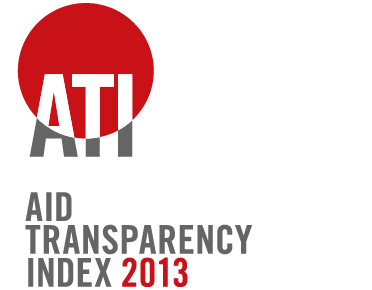2013 ATI: MORE IS NOT ENOUGH WHEN IT COMES TO AID INFO
LONDON – Information about aid spending is steadily becoming more available, but it also needs to become more useful, concludes a report released today by Publish What You Fund.
The results show there is a leading group of organisations that publish large amounts of useful information on their current aid activities. For the first time, a U.S. agency – the Millennium Challenge Corporation – ranks top, scoring 89%, more than double the average score.
The Aid Transparency Index (ATI) report is the industry standard for assessing foreign assistance transparency among the world’s major donors. For the first time, it not only assesses what information is published, but also the usefulness of that information.
For example, a donor that publishes budgets in PDFs is more transparent than one that does not publish them at all – but that information is of limited usefulness, because a PDF is hard to access, analyse and reuse.
Although the world’s largest and most influential providers of aid reaffirmed their commitment to transparency this year – at the G8 and as part of the post-2015 Millennium Development Goals framework – more than a third of the organisations ranked still score less than 20%.
This includes large donors, such as France and Japan, which have committed to implement the International Aid Transparency Initiative (IATI), the only internationally agreed standard for publishing aid data that seeks to make it easier to access, use and understand.
David Hall-Matthews, Director of Publish What You Fund, said:
“Open data and transparency are becoming fashionable watch words, but we’re checking if donors are really delivering, looking beyond high-level commitments and long-held reputations. The ATI ranking shows that no matter how many international promises are made, no matter how many speeches there are around openness, a startling amount of organisations are still not delivering on their aid transparency goals.
“We will continue to encourage organisations to release more data – but more is not enough. We also want to make sure that the information is useful.”
Several governments and organisations, including the African Development Bank, Canada, the European Commission, GAVI, UNDP, UNICEF and the U.S. Treasury have made big improvements this year, by publishing more information in accessible and comparable formats.
China comes last, making it the least transparent of the 67 organisations that were assessed in 2013.
The top 27 agencies all publish at least some current information to the agreed IATI standard. Because the data is published in the most open and comparable format, it is easier to access, and also more useful. Organisations receive lower scores for publishing in less useful formats such as PDFs or hard-to-navigate websites, or for not publishing the information consistently.
To see all the findings of the 2013 ATI, please visit: http://ati.publishwhatyoufund.org
/ Ends
Contact: Nicole Valentinuzzi T: +44 (0)7726 831 197 / + 1 (202) 834 7055
nicole.valentinuzzi@publishwhatyoufund.org
Notes:
- Publish What You Fund is the global campaign for aid transparency, advocating for a significant increase in the availability and accessibility of comprehensive, timely and comparable aid information. The organisation monitors the transparency of aid donors in order to track progress, encourage further transparency and hold them to account.
- The International Aid Transparency Initiative (IATI) has 33 signatory donors committed to publishing to its common standard. These donors account for over 85% of Official Development Finance (ODF).
- On Thurs 24 Oct at 1530 EST, watch the 2013 ATI launch here: http://www.publishwhatyoufund.org/2013-index-livestream/
